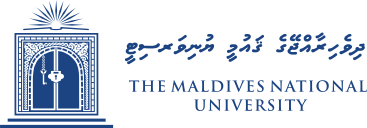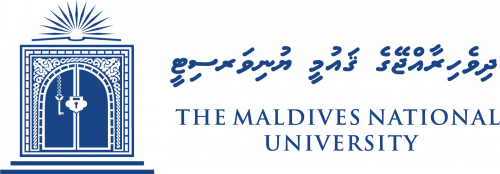Introduction
Universities in the United States (US) are key anchors of security and defence research. For example, the US National Security Agency’s (NSA) Science of Security (SoS) partnerships to expand academia have incorporated multidisciplinary issues into research projects, including areas of renewable energy and resources and healthcare, to improve researchers and students’ knowledge of cybersecurity management of healthcare issues related to technology and artificial intelligence (AI).
Security research is not limited to analysing a single interest – i.e., research is the knowledge platform that collects, analyses, collates and distributes complex datasets, in multiple fields, projecting innovative solutions for national issues.
As a place of cultivating future researchers and innovators, The Maldives National University (MNU) provides an academic platform, with research and policy innovation tools, to develop security discourse across multiple disciplines, to shape the Maldives’ national security and foreign policy. MNU can be pivotal in shaping policy solutions, and hence, a national research agenda to determine how the Maldives positions itself in the global security domain.
Constructing the research-operations nexus
The national defence plays a central role in determining a country’s national security and foreign policy position. For the Maldives, dealing with the multifaceted challenges posed by national and international events – i.e., including maritime incidents, natural disasters and regional conflicts and inter-state wars – requires comprehensive mechanisms, backed by complete information systems, to cut costs and maximise results in security operations. Moreover, a centrally governed research and development system is required to collate the complex sets of data generated by these challenges.
The US Department of Defense (DoD) operates in this purview to enhance security-related social science research, inform DoD policymakers on global social and cultural forces, train military leaders in social science methods, and boost cooperation between civilian and military educational institutions – for example, the Department of Defense’s Minerva Research Initiative is noted.
The Australian National University (ANU) conducts research fellowship programmes with the Australian military – for example, the ANU-AARC [Australian Army Research Centre (AARC)] Fellowships provide opportunities for ANU academics to collaborate with Army members to comprehend the strategic environment and research on selected topics to enhance the Army’s operational landscape.
This research-operations link plays a central role in shaping the security discourse – i.e., where the research has been conducted will have an impact on the national discourse.
For example, the Maldives has advanced human resources and infrastructure, with a high human development index, backed by multiple research platforms, starting from local non-governmental organisations (NGOs) to bilateral and international donors’ projects. However, as a national issue, security must be studied through a well-structured and resource-rich system, and hence, MNU can form a foundational platform to manage security discourse, in collaboration with other national and foreign researchers.
Building Collective Discourse – MNU Research Expertise
MNU research expertise spans several fields and sectors, including but not limited to health, food security, marine resources and governance, maritime transportation and shipping, fisheries management, economic industries, and foreign affairs and trade relations. These areas are inherently linked to national security issues and policy.
During the COVID-19 pandemic, MNU undertook a range of research projects and published papers addressing the multifaceted impacts of the crisis. These studies explored the economic impacts, health risks, and social security issues posed by the pandemic. MNU researchers delved into the economic strain on businesses and households, the public health responses, and the effectiveness of social safety nets.
Beyond pandemic-related research, MNU has been actively involved in community safety initiatives. Researchers conducted a public perception survey commissioned by the Maldives Police Service to gauge community sentiments on safety and security, drawing insights into public perception of law enforcement.
The focus on environmental management studies takes up another cluster of the multidisciplinary framework, examining the sustainable practices necessary to protect the Maldives’ unique ecosystem. Youth surveys have been conducted to understand the aspirations and challenges faced by the younger generation, informing policies that support their development in nation-building.
On peace and security, in collaboration with national agencies, MNU engages in national security topics like counter-terrorism, aiming to enhance the evidence-based policymaking.
An Agenda for Collaboration in Security Studies
Addressing threats to security, including potential acts of terrorism, maritime piracy and drug trafficking, illegal fishing and rescue operations at sea requires coordination between security and non-security agencies. The Maldives National Defence Force (MNDF) Coast Guard, under the purview of the Ministry of Defence, coordinates maritime security operations with the Maldives Police Service and non-security agencies, such as the Maldives Customs Service (MCS). Such agencies have training institutions to develop frameworks to facilitate whole-of-government efforts to guarantee national security – for example, in advancing the combat and operational readiness, the College of Defence and Security Studies (CDSS) offers mission-focused training to MNDF soldiers and sailors.
The existing training capabilities can be further advanced through research collaboration with the academic platform – i.e., the university academics can provide multidisciplinary theories, concepts and international knowledge-based, and by incorporating operational data, one can generate innovative and sophisticated frameworks to develop and implement security policies. In this approach, MNU can collaborate with security sector institutions and benefit from research fellowship initiatives, pooling knowledge and human resources within and across sectors. These engagements can tap into bilateral and multilateral cooperation in the field.
Conclusion
Advancing research engagements between academia and security agencies is essential for policy development and implementation. The Maldives faces unique challenges associated with its small size and resource capacity – i.e., understanding the aspect of security in the Maldives will significantly benefit from an advanced research platform. MNU, with its multiple fields of expertise, provides a foundation for advancing high-quality research to support the Maldives’ national security agenda.
Authors
Dr. Raheema Abdul Raheem has been appointed as the Deputy Vice-Chancellor (Research and Enterprise) at The Maldives National University (MNU) since December 2023. She holds a PhD in Public Health and has numerous publications in public health and awareness. Previously, as Dean of Research at MNU, she led over 40 research projects, secured funding, and served as vice-chair of the university ethics committee. Raheema also organised six Theveli and two IEEE conferences. Her notable research projects include SSAPI, leprosy strategy, soil-transmitted helminthiasis, Maldives Steps Survey, trans-fat survey, and dengue control using Wolbachia.
Athaulla A Rasheed is the Head of Centre at the Centre for Security and Strategic Studies at The Maldives National University. A former foreign service officer and diplomat at the Ministry of Foreign Affairs, Maldives, Athaulla also holds two PhDs in international and strategic studies and political science from ANU and the University of Queensland, Australia.

